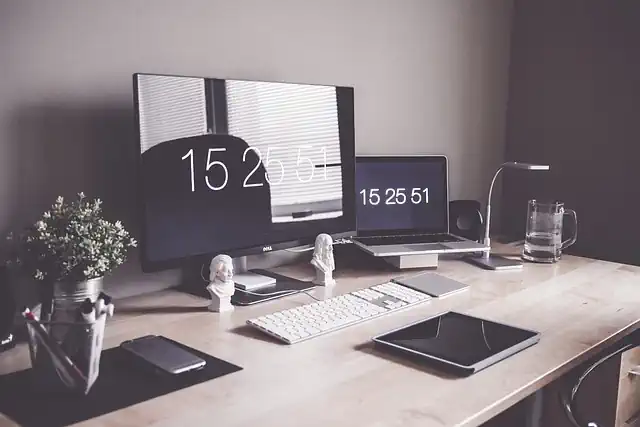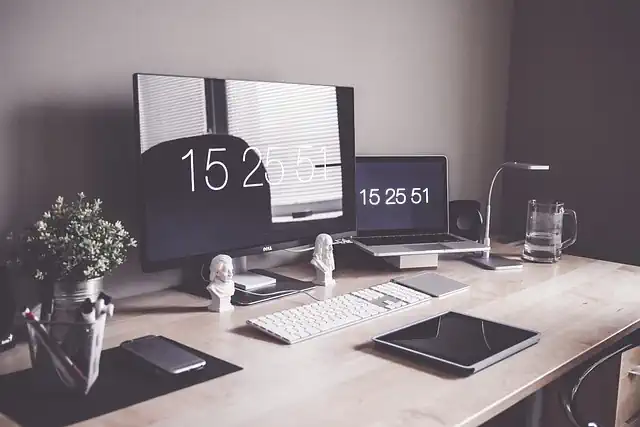How Can I Make Money With Solar Panels
Introduction

Solar panels are becoming increasingly popular as a way to generate electricity and reduce reliance on traditional energy sources. As the cost of solar panels continues to decrease, many people are wondering how they can make money with solar panels. In this article, we will explore some of the ways that you can earn money by installing solar panels on your property or investing in solar energy projects.
Maximizing Your Solar Panel Investment: Tips for Selling Excess Energy
As the world becomes more environmentally conscious, many people are turning to solar panels as a way to reduce their carbon footprint and save money on energy bills. However, did you know that you can also make money with solar panels? By selling excess energy back to the grid, you can turn your solar panel investment into a profitable venture.
The first step in making money with solar panels is to ensure that your system is producing more energy than you need. This means that you will need to install a larger system than what is required to power your home. The excess energy that your system produces can then be sold back to the grid.
To sell excess energy back to the grid, you will need to sign up for a net metering program with your utility company. Net metering allows you to receive credit for the excess energy that your system produces, which can then be used to offset your energy bills or sold back to the grid.
When selling excess energy back to the grid, it is important to understand the different pricing structures that are available. Some utility companies offer a fixed rate for excess energy, while others offer a variable rate that fluctuates based on demand. It is important to research the pricing structures of your utility company to determine which option is best for you.
Another way to maximize your solar panel investment is to participate in a solar co-op. A solar co-op is a group of homeowners who pool their resources to install a larger solar system. By installing a larger system, the co-op can negotiate better pricing and financing options, which can result in significant savings.
In addition to selling excess energy back to the grid, there are other ways to make money with solar panels. One option is to participate in a solar lease program. Under a solar lease program, a third-party company installs and maintains the solar panels on your property. In exchange, you pay a monthly fee for the use of the panels. While you may not receive as much money as you would by selling excess energy back to the grid, a solar lease program can still provide significant savings on your energy bills.
Another option is to participate in a solar investment program. Under a solar investment program, you invest in a larger solar project that is owned and operated by a third-party company. In exchange for your investment, you receive a share of the profits generated by the project. While this option requires a larger upfront investment, it can provide significant returns over time.
In conclusion, making money with solar panels is a great way to maximize your investment and reduce your carbon footprint. By selling excess energy back to the grid, participating in a solar co-op, or participating in a solar lease or investment program, you can turn your solar panel investment into a profitable venture. It is important to research the different options available and to work with a reputable solar installer to ensure that your system is installed correctly and efficiently. With the right approach, you can enjoy the benefits of solar energy while also making a profit.
The Benefits of Solar Panel Leasing: A Beginner’s Guide
Solar panels are becoming increasingly popular as a way to reduce energy costs and decrease our carbon footprint. However, the upfront cost of purchasing and installing solar panels can be a significant barrier for many homeowners. Fortunately, there is an alternative option: solar panel leasing. In this beginner’s guide, we will explore the benefits of solar panel leasing and how it can help you make money with solar panels.
First and foremost, solar panel leasing allows homeowners to enjoy the benefits of solar energy without the high upfront costs. Instead of purchasing the solar panels outright, homeowners can lease them from a solar company. The solar company will install the panels on your roof and maintain them for the duration of the lease. In exchange, you pay a monthly fee for the use of the panels.
One of the primary benefits of solar panel leasing is that it can save you money on your energy bills. Solar panels generate electricity from the sun, which means you can use less energy from your utility company. Depending on the size of your solar panel system and your energy usage, you may be able to significantly reduce or even eliminate your monthly energy bills. This can result in substantial savings over the course of the lease.
Another benefit of solar panel leasing is that it can increase the value of your home. Solar panels are a desirable feature for many homebuyers, as they offer long-term energy savings and environmental benefits. According to a study by the National Renewable Energy Laboratory, homes with solar panels sell for an average of 4.1% more than homes without solar panels. This means that if you decide to sell your home during the lease period, you may be able to recoup some or all of the cost of the lease.
In addition to saving money and increasing the value of your home, solar panel leasing can also help you make money. Many solar companies offer a program called net metering, which allows homeowners to earn credits for excess energy generated by their solar panels. These credits can be applied to future energy bills or sold back to the utility company for a profit. This means that in addition to saving money on your energy bills, you can also earn money from your solar panels.
It is important to note that solar panel leasing is not without its drawbacks. One potential downside is that you do not own the solar panels, which means you cannot take advantage of any tax incentives or rebates that may be available for solar panel owners. Additionally, the terms of the lease may include restrictions on the use of your roof or require you to purchase additional insurance coverage.
Overall, solar panel leasing can be a great option for homeowners who want to enjoy the benefits of solar energy without the high upfront costs. By reducing your energy bills, increasing the value of your home, and potentially earning money through net metering, solar panel leasing can help you save money and make money at the same time. However, it is important to carefully consider the terms of the lease and weigh the pros and cons before making a decision. With the right information and guidance, you can make an informed decision about whether solar panel leasing is right for you.
DIY Solar Panel Installation: Saving Money and the Environment
As the world becomes more environmentally conscious, many people are looking for ways to reduce their carbon footprint and save money at the same time. One way to achieve both of these goals is by installing solar panels on your home. Not only can you generate your own electricity, but you can also sell any excess energy back to the grid. But how can you make money with solar panels? In this article, we will explore the benefits of DIY solar panel installation and how it can help you save money and the environment.
Firstly, DIY solar panel installation can save you a significant amount of money. By installing the panels yourself, you can avoid the high costs associated with hiring a professional installer. Additionally, many states offer tax incentives and rebates for homeowners who install solar panels. These incentives can help offset the initial cost of the panels and make them more affordable for homeowners.
Another way to make money with solar panels is by selling any excess energy back to the grid. When your solar panels generate more energy than you need, the excess energy is sent back to the grid. In some states, utilities are required to pay homeowners for this excess energy. This is known as net metering, and it can be a great way to earn some extra income while also reducing your carbon footprint.
DIY solar panel installation can also help you save money on your monthly energy bills. By generating your own electricity, you can reduce your reliance on the grid and lower your energy bills. This can be especially beneficial during the summer months when energy usage tends to be higher. Additionally, if you live in an area with high electricity rates, solar panels can help you save even more money in the long run.
But the benefits of DIY solar panel installation go beyond just saving money. By generating your own electricity, you are also reducing your carbon footprint and helping to protect the environment. Solar energy is a clean and renewable source of energy that produces no greenhouse gas emissions. By using solar panels, you are helping to reduce the amount of fossil fuels that are burned to generate electricity.
In conclusion, DIY solar panel installation is a great way to make money while also helping to protect the environment. By installing the panels yourself, you can save money on installation costs and take advantage of tax incentives and rebates. Additionally, selling any excess energy back to the grid can be a great way to earn some extra income. But perhaps most importantly, by generating your own electricity with solar panels, you are helping to reduce your carbon footprint and protect the environment for future generations. So if you’re looking for a way to save money and make a positive impact on the environment, consider installing solar panels on your home.
Solar Panel Maintenance: How to Keep Your Investment Running Efficiently
Solar panels are a great investment for anyone looking to save money on their energy bills and reduce their carbon footprint. However, like any investment, it requires proper maintenance to ensure that it runs efficiently and lasts for a long time. In this article, we will discuss some tips on how to keep your solar panels running smoothly and how to make money with them.
The first step in maintaining your solar panels is to keep them clean. Dirt, dust, and debris can accumulate on the surface of the panels, reducing their efficiency. Regular cleaning with a soft brush or a hose can help remove any buildup and keep your panels working at their best. It is also important to check for any damage or cracks in the panels and have them repaired as soon as possible.
Another important aspect of solar panel maintenance is monitoring their performance. You can do this by checking the output of your panels regularly and comparing it to their expected output. If you notice a significant drop in performance, it may be a sign of a problem that needs to be addressed. You can also invest in monitoring systems that can track the performance of your panels and alert you to any issues.
In addition to maintaining your solar panels, you can also make money with them. One way to do this is by selling any excess energy that your panels generate back to the grid. Many utility companies offer net metering programs that allow you to earn credits for the excess energy you produce. These credits can then be used to offset your energy bills or sold back to the utility company for a profit.
Another way to make money with solar panels is by participating in solar leasing programs. These programs allow you to lease your panels to a third party who will install and maintain them on your behalf. In exchange, you will receive a monthly payment for the energy that your panels generate. This can be a great option for those who do not have the upfront capital to invest in their own solar panels.
Finally, you can also make money with solar panels by taking advantage of tax incentives and rebates. Many governments offer tax credits and rebates for those who install solar panels on their homes or businesses. These incentives can help offset the cost of installation and make solar panels a more affordable option for many people.
In conclusion, solar panels are a great investment for anyone looking to save money on their energy bills and reduce their carbon footprint. However, proper maintenance is essential to ensure that they run efficiently and last for a long time. By keeping your panels clean, monitoring their performance, and taking advantage of opportunities to make money with them, you can enjoy the benefits of solar energy for years to come.
The Future of Solar Energy: Investing in Solar Stocks and Companies
As the world continues to shift towards renewable energy sources, solar energy has emerged as a promising alternative to traditional fossil fuels. With the increasing demand for clean energy, investing in solar stocks and companies has become an attractive option for those looking to make money while also contributing to a sustainable future.
Solar energy is a rapidly growing industry, with the global solar market expected to reach $422 billion by 2022. This growth is driven by a number of factors, including government incentives, falling costs of solar technology, and increasing public awareness of the benefits of renewable energy.
Investing in solar stocks and companies can be a smart financial decision, as the industry is poised for continued growth in the coming years. However, it is important to do your research and choose investments wisely.
One way to invest in solar energy is through solar stocks. There are a number of publicly traded companies that specialize in solar energy, including manufacturers of solar panels, developers of solar projects, and providers of solar services. These companies can offer investors exposure to the solar industry and the potential for significant returns.
When considering solar stocks, it is important to look at a company’s financials, including revenue growth, profitability, and debt levels. It is also important to consider the company’s competitive position within the industry, as well as any regulatory or policy risks that may impact the company’s operations.
Another way to invest in solar energy is through exchange-traded funds (ETFs) that focus on the solar industry. These funds offer investors exposure to a diversified portfolio of solar stocks, reducing the risk of investing in a single company. Some popular solar ETFs include the Invesco Solar ETF and the iShares Global Clean Energy ETF.
In addition to investing in solar stocks and ETFs, there are also opportunities to invest in solar projects directly. This can include investing in solar farms or rooftop solar installations, either through crowdfunding platforms or through direct investment in a project.
Investing in solar projects can offer attractive returns, as well as the satisfaction of knowing that you are contributing to the growth of renewable energy. However, it is important to carefully evaluate the risks and potential returns of each project before investing.
Overall, investing in solar energy can be a smart financial decision, as well as a way to support a sustainable future. As the world continues to shift towards renewable energy sources, the solar industry is poised for continued growth, making it an attractive option for investors looking to make money while also making a positive impact on the environment.
Conclusion
Conclusion: Installing solar panels on your property can be a great way to save money on energy bills and even make money through selling excess energy back to the grid. However, it is important to do your research and consider factors such as location, cost, and potential savings before making the investment. With proper planning and installation, solar panels can be a profitable and environmentally-friendly investment.






